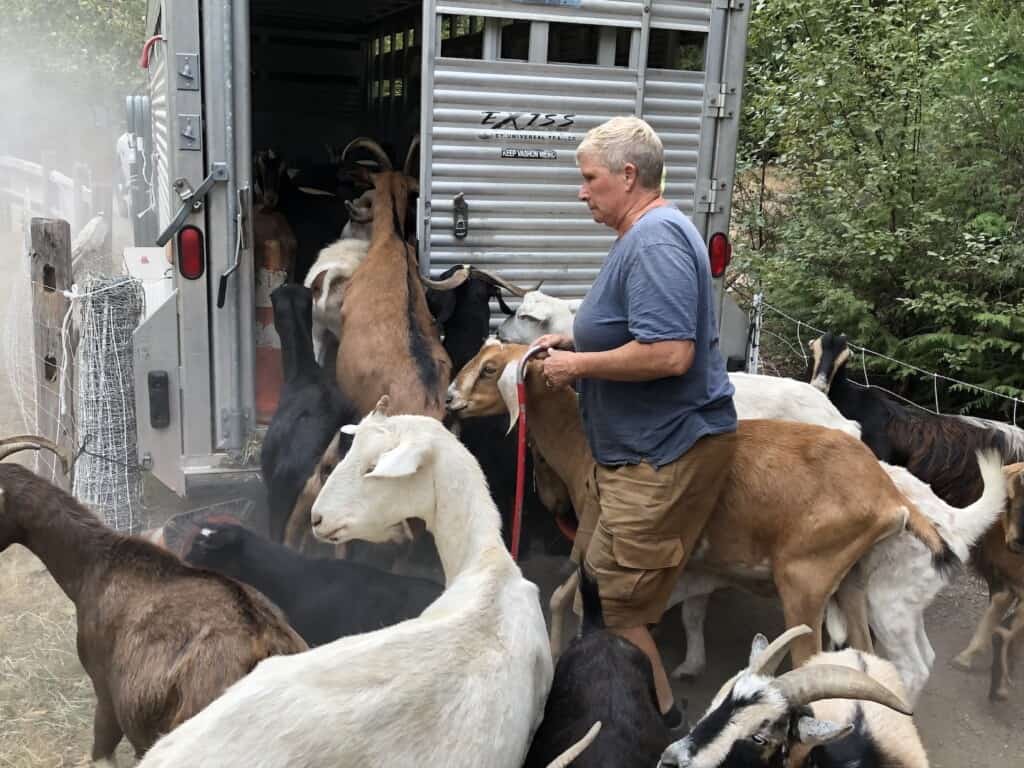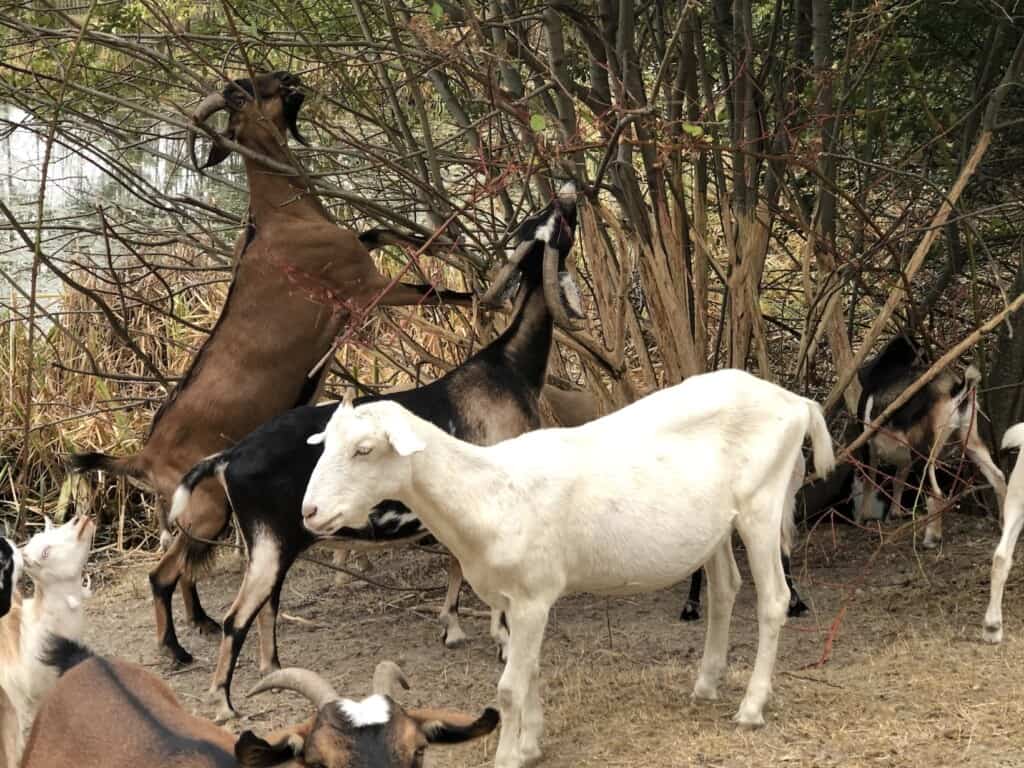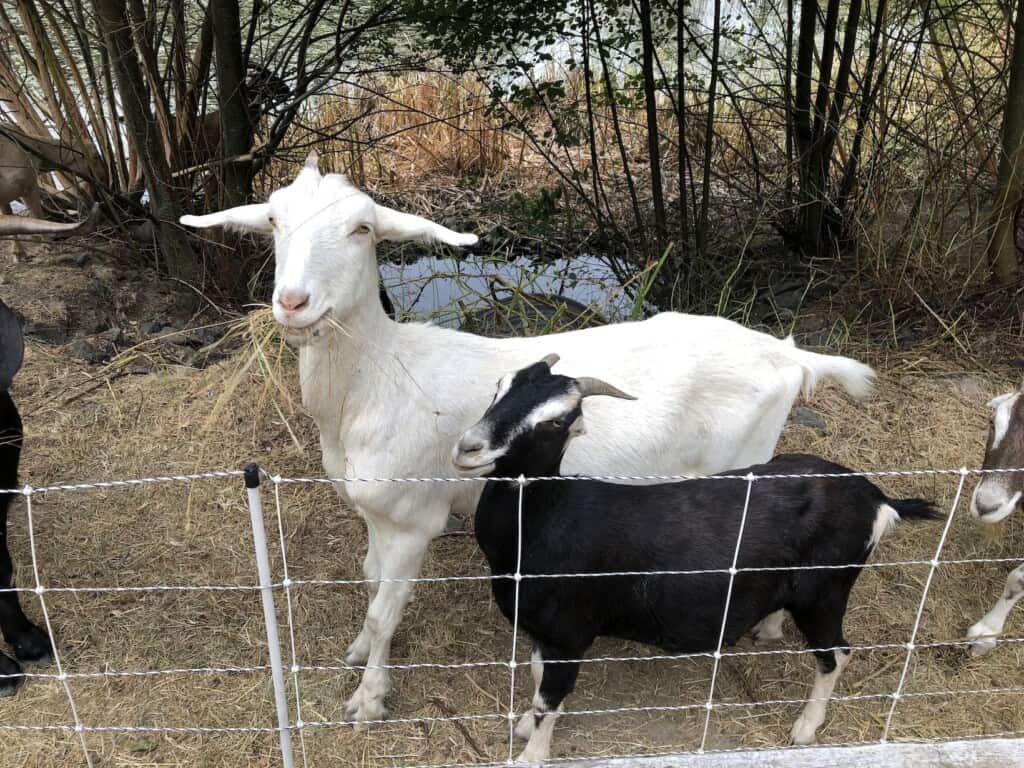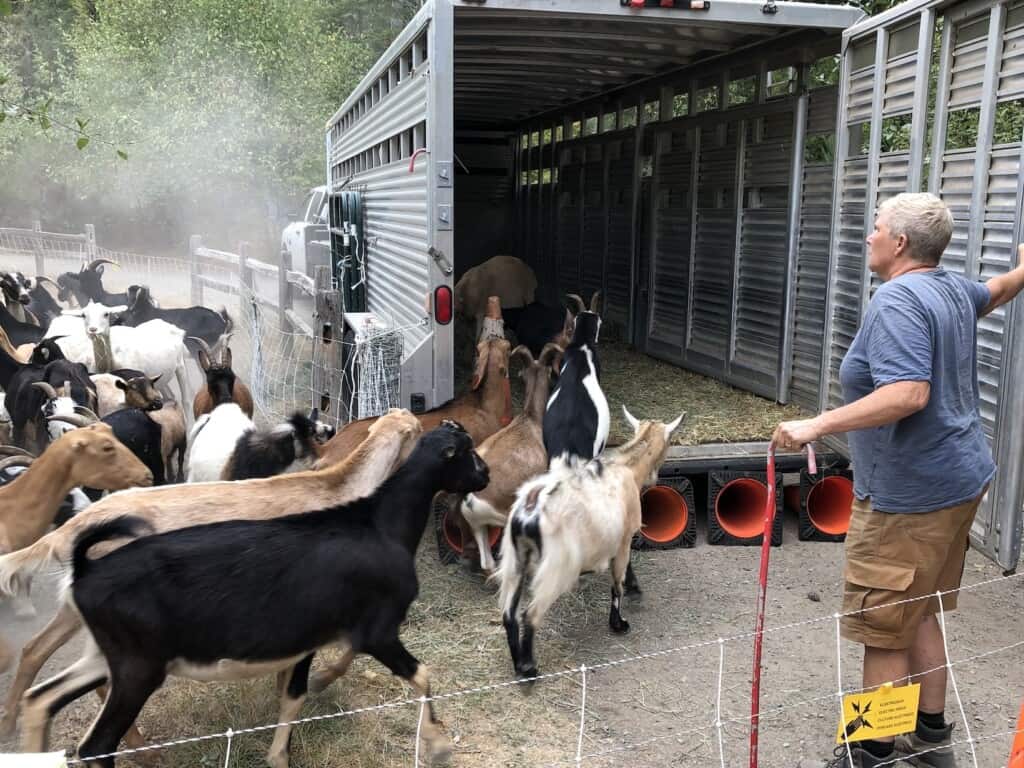Environment
Goats tread where mowers cannot go
A goat herd chewed overgrown brush around a Gig Harbor North stormwater retention pond into stubble last week.
With vegetation rising above a 4-foot-tall regulated height for such areas, property managers called goat busters — Rent-a-Ruminant of Vashon Island. Within six days, 120 goats had chomped away unwanted grasses, Scotch broom and blackberries. After razing the ground growth, they stood and reached leaves and bark from small alder, willow and cottonwood trees.

Tammy Dunakin loads goats into a trailer after they completed a six-day brush-clearing job in Gig Harbor North. Ed Friedrich / Gig Harbor Now
“They’re super effective and very ecologically friendly,” said Tammy Dunakin, who founded the business 17 years ago and operates it with only her speedy border collie, Liz. “They can go where people and machines can’t go easily or safely.”
Besides four-hoof drive, another major goat advantage is their “superpower” of sterilizing seeds in their digestive system so weeds don’t repropagate.
Dunakin rolled out and staked an electric mesh fence around the large property to contain the herd. The waist-high barrier is powered by a car battery. Seven months a year, she and Liz shuttle from job to job, sleeping on site in a travel trailer.

After finishing off the ground growth, goats reach into the trees for more food. Ed Friedrich / Gig Harbor Now
The retention pond is ringed by Tom Taylor Family YMCA, Gig Harbor Little League fields and the Harbor Hill housing development. The Y, Harbor Hill and Costco provide for its maintenance. Considering the steep slope down to the water, goats are an ecological and economical deal. The herd costs $850 per day.
Goats are smarter than most dogs (though not as bright as Liz), making them excellent escape artists, said Dunakin. In fact, after loading into the long trailer for their next feast in Maltby, they were stuck in traffic on Burnham Drive Friday. Suddenly, the gate sprang open and they piled out of the back and flowed toward the lush, green grass along the shoulders. Liz, like in a Chinese fire drill, quickly chased them back inside.

Some goats have horns or beards, others don’t. It doesn’t have anything to do with gender. Ed Friedrich / Gig Harbor Now
The goats, which all have names, are mostly rescues “because there are a lot of unwanted goats in the world,” Dunakin said. “We want to give them a good life.”
Dairy farmers breed goats, which usually birth two to four kids. They keep the females to milk and sometimes slaughter the males. Also, people buy them because they’re cute, like Easter bunnies, but often find themselves over their heads.

Tammy Dunakin, loading up her goats to move on to the next job, has owned Rent-a-Ruminant for 17 years. Ed Friedrich / Gig Harbor Now
Goats live into their teens. When they get old, Dunakin puts them out to pasture at her Vashon farm.
“They live with us for life,” she said. “When they can’t work anymore, they retire to our place we call the Old Goats Home and they live out their lives as happy as can be.”

